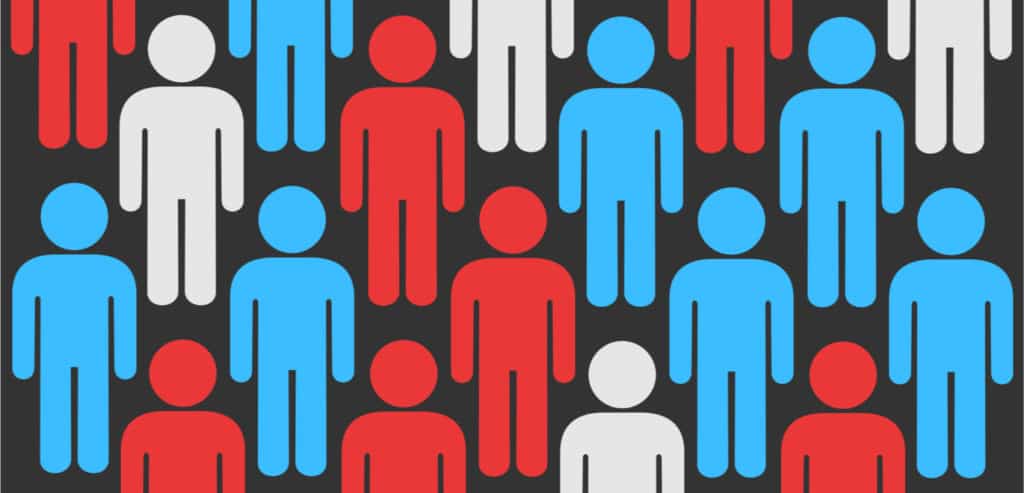Consumers’ political preferences offer clues to how they shop, according to data from Infogroup, a provider of consumer marketing data and services.
Political moderates are the most likely to buy online, closely followed by liberals. And both groups shop frequently for women’s apparel, home furnishings and children’s goods. Conservatives are the most likely to shop via catalogs. And they buy a lot of tools and auto repair products, books and music, and crafts items.
These conclusions are based on an analysis of 50,000 consumers from each of three categories—individuals who characterize themselves as conservative, liberal and moderate—and then comparing those groups against all consumers in the Infogroup database. Infogroup says it has data on 300 million individuals in 184 million households compiled through its own research, client data and external sources.
The analysis suggests there are other significant differences based on political affiliation. Liberals are the youngest and most likely to live in cities. Conservatives are the oldest, and more likely to live in suburbs and rural areas. Moderates have the highest income, are most likely to have a college degree and are the most likely to be married and have children in the home.
Why is it important to understand these connections between political leaning and lifestyle?
“This kind of marketing intelligence influences the channels marketers decide to use to promote their products and services—whether it be particular radio outlets, Fox News vs. MSNBC, or particular print publications,” says Heather Winnicki, Infogroup senior vice president of consumer transactional data. “It’s especially important now, at a time of great polarization, that companies know who is responding to their messages, so they can align those messages with their goals.”
Winnicki notes that much of this data comes from direct-to-consumer retailers and brands, many of them selling non-essential items. That might skew the income and education numbers higher, as lower-income consumers might be less likely to buy products that are not necessities.
She also can’t explain why moderates appear to be the most affluent and the biggest shoppers for discretionary items. “We don’t know the reason for the disproportionately high income we’re seeing among moderates,” she says. “Perhaps those who don’t commit themselves to one side or the other are able to accumulate more wealth. We don’t know. It may warrant an in-depth political study. ”
Here are some additional insights from the Infogroup report about the relationship between political preference and various shopping behaviors and demographic characteristics:
- 84.1% of political moderates and 83.9% of liberals have made an online purchase in the past year, versus 71.8% for both conservatives and consumers overall.
- 32.2% of moderates have purchased $500 or more online in the last 12 months compared with 28.5% of liberals, 25.4% of conservatives and 22.2% of all shoppers.
- 26.6% of conservatives have purchased from a catalog in the past year, versus 23.0% of all consumers, 20.1% of moderates and 16.4% of liberals.
- Liberals are the youngest group, with 37.4% under 40 and 42.3% over 50. Conservatives are the oldest, with only 21.8% under 40 and 62.2% 50 or over.
- 78.6% of moderates are college graduates, versus 64.2% of liberals, 60.8% of conservatives and 49.4% of consumers overall.
- 93.7% of moderates and 92.2% of conservatives own their own homes, compared with 78.2% of all consumers and 73.6% of liberals.
- Moderates are the most likely to have children at home, at 44.3%, followed by 39.1% for conservatives, 31.7% for liberals and 30.8% for all consumers.
- 61.9% of liberals and 58.9% of moderates live in urban areas, versus 41.8% of the consumers overall and 37.8% of conservatives. 32.5% of conservatives live in suburbs and 29.7% in exurban or rural areas.
